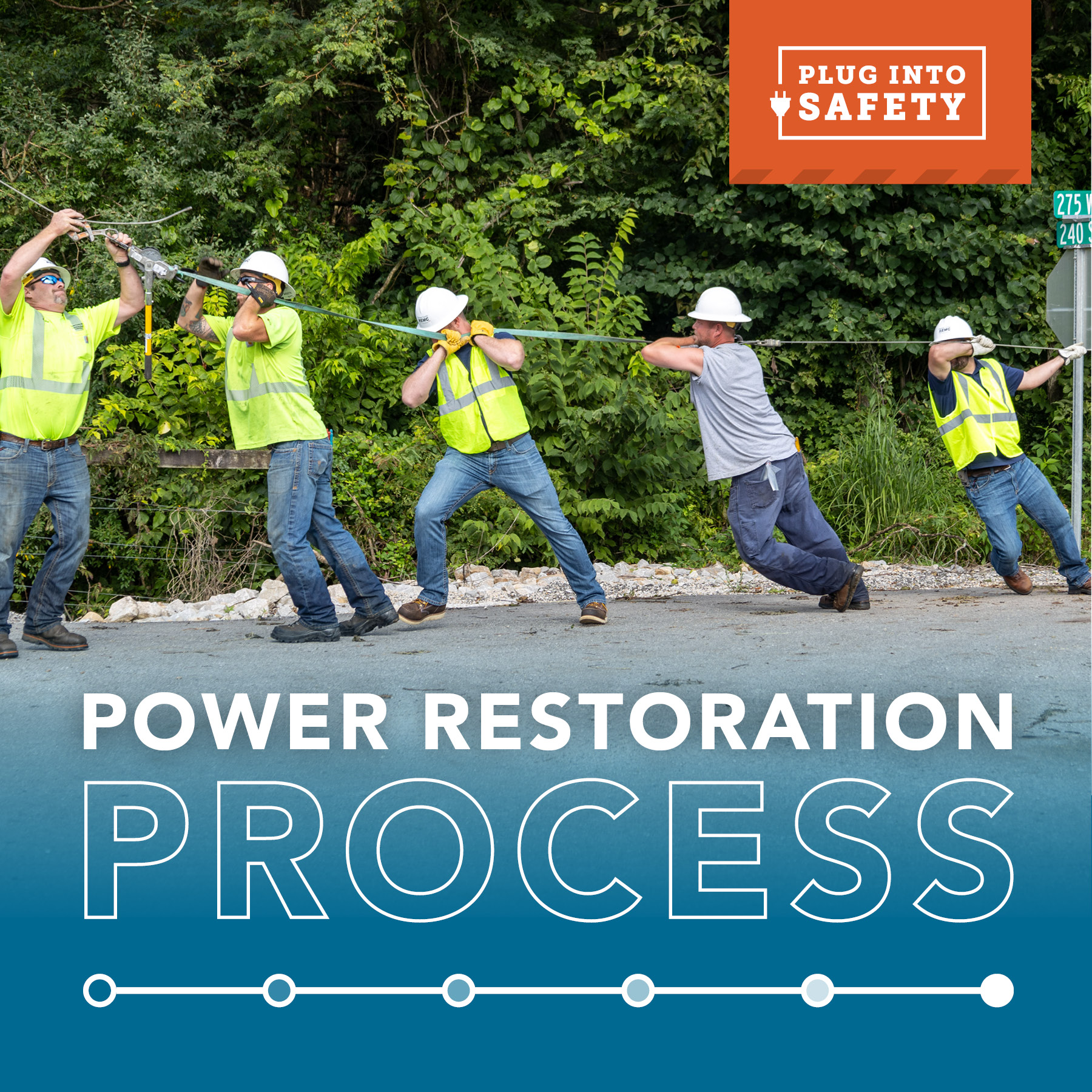While catastrophic events like tornadoes and fires ravage homes in little time, floodwaters can rise quickly but take days to subside. Victims must wait patiently for water to recede before returning home to start rebuilding their lives. Although it may be impossible to avoid an imminent flood, there are ways to mitigate its effects before, while and after it happens.
“Watch out for dangers involving electricity during and after a flood,” said Rick Coons, CEO Indiana Electric Cooperatives. “Keep safety in mind every step of the way. Remember, electricity and water never go together, and when you’re dealing with floodwater you’re in an especially risky situation.”
Prepare for flooding and electrical dangers associated with it by following these tips. (Don’t do any of these things if you have to stand in water or on a damp floor to do them.):
Before a flood
- Clearly mark electric circuit breakers or fuses for each area of your house.
- If floodwaters are approaching, turn off electricity at the main breaker or fuse box.
- Unplug small appliances.
- Unplug large appliances (like washers and dryers) and move them onto higher ground or on blocks if possible.
- Put plugs in toilets, showers and sinks. This will prevent sewer backup.
- Consider getting a backup generator in case your power goes out.
During a flood
- If water covers electrical outlets or plugged-in cords in a room, stay out! The same goes if you hear buzzing, snapping, crackling or popping sounds.
- Stay away from any electrical equipment if water is surrounding it. Don’t use electric-powered equipment if you are standing on a wet surface.
After a flood
- Before entering a flood-damaged building, make sure the electrical system has been turned off. Do not turn on the lights or appliances unless a licensed electrician says it is safe to do so.
- Check the outside of your house before walking inside and look for downed power lines or electrical connections that are in contact with the water. Smell the air for gas. Contact your electric co-op or the gas company if there is a problem. If water is still surrounding the house, look to see if there are any cracks or if walls are giving way.
- If electrical devices end up under floodwaters, throw them away.
- If an electrical appliance is damaged, do not turn it on.
- Prevent electrocutions and electrical shocks by using ground fault circuit interrupters.
Sources: Underwriters Laboratories, IAEI, Moorhead Public Service, About.com





